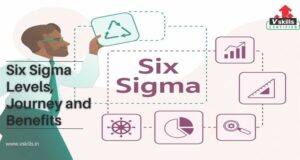The finance and technology industries are dynamic and ever-evolving fields that demand professionals with a unique blend of skills and attributes. As a result, recruiters and hiring managers in these sectors have increasingly turned to behavioural interviews to assess candidates’ soft skills like adaptability, problem-solving, and innovation skills. These skills are essential for success in these industries, as they allow employees to work effectively with others, solve problems creatively, and adapt to change. Behavioural interviews go beyond traditional questions about qualifications and experience, delving into the candidate’s past behaviours and experiences to predict future performance.
Behavioral interviewing is a technique used to question job candidates about their past experiences.
In this blog, we will explore the significance of behavioural interviewing in finance and technology, dissect the key behavioural competencies required in these sectors, and provide strategies and sample responses for candidates facing such interviews.
In finance and technology, several key behavioural competencies are highly valued. These competencies are critical for success in roles that demand adaptability, problem-solving, and innovation. Let’s delve into each of these competencies in detail:
- Adaptability: The ability to adapt to rapidly changing circumstances and embrace new technologies and methodologies is crucial in both finance and technology. Professionals must be open to learning and unlearning, adjusting strategies when necessary, and maintaining composure in high-pressure situations.
- Problem-Solving: Effective problem-solving skills are essential in these industries, where complex challenges are a daily occurrence. Candidates should demonstrate their ability to identify problems, analyse data, generate creative solutions, and implement them successfully.
- Innovation: In finance and technology, innovation is a driving force behind growth and competitiveness. Candidates should showcase their capacity to think creatively, propose new ideas, and collaborate with others to turn innovative concepts into reality.
Strategies for Navigating Behavioural Interviews
So, how exactly do you solve these questions? Here are some strategies for navigating behavioural interviews in finance and technology:
- Prepare Thoroughly: Start by researching the company and the specific role you’re interviewing for. Understand the company’s culture, values, and the challenges it faces in the finance or technology industry. Tailor your responses to align with the company’s expectations and the role’s requirements.
- Identify Relevant Experiences: Before the interview, make a list of experiences from your past that showcase the key behavioural competencies required in the industry. To organize your responses, use the STAR method (Situation, Task, Action, Result). This method ensures that your answers are specific and provide a clear context for your actions.
- Practice Behavioural Questions: Familiarize yourself with common behavioural interview questions in finance and technology. Some examples include:
- “Share with me about an instance where you needed to rethink your professional path or project as a result of an important transition. What were the outcomes of your actions?”
- “Can you outline a complex scenario you experienced along with the manner you explored resolving it?”
- “Explain to me about an occasion in which you had to convey complicated financial/technical knowledge to an otherwise non-expert readership.”
- “Can you provide an instance of a creative approach you came up with and executed in your prior position.”
- Showcase Results and Impact: In your responses, emphasize the results and impact of your actions. Quantify your achievements whenever possible. For instance, mention how your problem-solving skills improved efficiency or how your innovative idea contributed to revenue growth.
- Be Honest and Reflective: Behavioural interviews aim to assess your real experiences and behaviours. Avoid providing hypothetical or idealized answers. Instead, be honest about challenges you faced and what you learned from them.
Sample Interview Questions
Behavioural interview questions are typically open-ended and ask candidates to describe specific situations or scenarios that demonstrate how they have used their soft skills in the past. For example, an interviewer might ask a candidate to describe a time when they had to adapt to a change in plans, solve a difficult problem, or work effectively with a difficult team member.
Here are some samples of behavioural interview questions and their possible responses that assess adaptability, problem-solving, and innovation skills in the context of finance and technology:
Adaptability in Behavioural Interviewing
Case Study: Assessing Adaptability in a FinTech Candidate under Behavioural Interviewing
Case Scenario: Candidate’s experience in the banking sector primarily involved traditional financial products and services. However, the technology company he’s applying to specializes in emerging technologies and digital services. In this role, he would need to adapt to a different industry and work with new tools, data sources, and financial models under behavioural interviewing.
Questions based on the case scenario:
Q1. In your previous role, you primarily dealt with traditional banking services. How would you approach the challenge of transitioning to a technology company with a focus on emerging technologies?
A) I would stick to my expertise and apply traditional banking principles to the technology industry.
B) I would undertake self-study to understand the technology industry and its financial aspects
C) I would rely solely on my previous experience and disregard the differences in the new industry.
D) I would not take the job, as I lack experience in the technology sector.
Answer: B) I would undertake self-study to understand the technology industry and its financial aspects.
Explanation: Option B demonstrates adaptability as the candidate recognizes the need to acquire new knowledge and adapt to the technology industry, which is a positive sign of their willingness to learn and grow in a different field.
Q2. What steps would you take to stay updated on the latest developments in the technology sector, which could impact your financial analysis work?
A) I would join industry-specific online forums and attend relevant seminars and webinars.
B) I would only focus on financial news and ignore technology updates.
C) I would not make any effort to stay updated as my previous experience is sufficient.
D) I would rely on my colleagues to inform me of any relevant technology changes.
Answer: A) I would join industry-specific online forums and attend relevant seminars and webinars.
Explanation: Option A indicates adaptability, as the candidate shows a proactive approach to staying current with industry developments. This aligns with the adaptable mindset necessary in a dynamic field like technology.
Q3. How would you handle a situation where you were asked to analyze financial data from a source you were unfamiliar with and which is unique to the technology industry?
A) I would reject the task, as I am only comfortable with traditional financial data sources.
B) I would seek guidance from a colleague and request training if necessary.
C) I would attempt the task but provide inaccurate analysis due to my lack of familiarity.
D) I would ask for an extension on the task until I gain expertise in the new data source.
Answer: B) I would seek guidance from a colleague and request training if necessary.
Explanation: Option B demonstrates adaptability by showing a willingness to learn and collaborate with colleagues, ensuring accurate analysis despite being unfamiliar with the data source.
Q4. You’ve been using a specific financial modeling software for years. If your new role requires you to switch to a different software, how would you adapt?
A) I would refuse to use the new software and continue with my preferred one.
B) I would insist on additional training but not use the new software until I am completely comfortable with it.
C) I would adapt by seeking training and gradually transitioning to the new software.
D) I would not take the job if it meant using a different software.
Answer: C) I would adapt by seeking training and gradually transitioning to the new software.
Explanation: Option C shows adaptability as the candidate is willing to transition to a new software, demonstrating a proactive approach to change while mitigating risks associated with immediate transition.
Q5. Imagine a scenario where a new technology is introduced that changes the way financial data is collected and analyzed. How would you adapt your analytical approach to accommodate this new technology?
A) I would continue using my existing methods, ignoring the new technology.
B) I would immediately switch to the new technology without considering potential issues.
C) I would ask the company to hire a specialist to handle the new technology.
D) I would explore and test the new technology to understand its potential benefits and limitations.
Answer: D) I would explore and test the new technology to understand its potential benefits and limitations.
Explanation: Option D indicates adaptability as the candidate is open to exploring the new technology and assessing its suitability for their role, ensuring a balanced approach to change.
In assessing adaptability, it’s crucial to consider a candidate’s willingness to learn, their proactive attitude toward change, and their ability to adapt to new tools and environments. The correct answers provided above demonstrate qualities of adaptability within the context of behavioral interviewing in finance and technology.
Problem-Solving in Behavioural Interviewing
Case Study: Assessing Problem-Solving in a Finance and Technology under Behavioural Interviewing
Case Scenario: In her new role, the candidate will face various challenges, including optimizing financial processes through automation, managing financial data from a wide range of technology-related activities, and making strategic financial decisions to support the company’s technology investments under behavioural interviewing.
Questions based on the case scenario:
Q1. Your team is struggling with manual data entry and reconciliation tasks, causing errors and delays. What steps would you take to address this issue?
A) Continue with the existing process, as it has worked well in your previous roles.
B) Ignore the issue and focus solely on the strategic aspects of financial management.
C) Assign more staff to the manual tasks to increase efficiency.
D) Investigate and identify areas where automation can be implemented to streamline the data entry and reconciliation tasks.
Answer: D) Investigate and identify areas where automation can be implemented to streamline the data entry and reconciliation tasks.
Explanation: Option D showcases problem-solving skills as it involves recognizing the problem, identifying a solution, and addressing it proactively by proposing automation to streamline the process.
Q2. Your company is considering a significant investment in a new technology project. How would you assess the financial viability and potential risks associated with this investment?
A) Rely solely on your intuition and previous experience without conducting any formal analysis.
B) Collaborate with other team members and conduct a comprehensive financial analysis, including cost-benefit analysis and risk assessment.
C) Delegate the task to a financial analyst on your team.
D) Reject the idea of the technology investment as it deviates from your previous banking experience.
Answer: B) Collaborate with other team members and conduct a comprehensive financial analysis, including cost-benefit analysis and risk assessment.
Explanation: Option B demonstrates problem-solving by advocating for a structured and collaborative approach to assess the financial viability and risks of the technology investment, which is essential in financial decision-making.
Q3. You encounter a situation where a critical financial software system crashes during a crucial financial reporting period. How would you handle this crisis to minimize the impact on the company’s financial operations?
A) Isolate the problem and work with IT to restore the software system as quickly as possible.
B) Panic and report the issue to senior management without attempting any immediate solutions.
C) Delay the financial reporting until the software is fixed, risking potential regulatory non-compliance.
D) Continue working manually, disregarding the software system until it is resolved.
Answer: A) Isolate the problem and work with IT to restore the software system as quickly as possible.
Explanation: Option A showcases problem-solving skills as it involves immediate action to isolate the issue and collaborate with the IT department to resolve it promptly, thereby minimizing the impact on financial operations.
Q4. You are tasked with reducing operational costs in your finance department to align with the company’s budgetary goals. How would you approach this challenge?
A) Lay off a significant number of finance department staff to achieve immediate cost reductions.
B) Conduct a thorough analysis of the department’s processes and expenses, identify inefficiencies, and implement targeted cost-saving measures.
C) Implement a blanket reduction in all department budgets to achieve cost savings.
D) Request additional funds from senior management to maintain current operations.
Answer: B) Conduct a thorough analysis of the department’s processes and expenses, identify inefficiencies, and implement targeted cost-saving measures.
Explanation: Option B represents problem-solving as it involves a methodical approach to identifying inefficiencies and implementing specific cost-saving measures, which aligns with responsible financial management.
Q5. You’re faced with a situation where two critical projects with tight deadlines require your attention simultaneously. How would you prioritize and manage these projects effectively?
A) Prioritize one project over the other and neglect the less important one.
B) Panic and attempt to work on both projects simultaneously.
C) Collaborate with your team to assess the urgency and importance of each project and allocate resources accordingly.
D) Delegate both projects to other team members without further involvement.
Answer: C) Collaborate with your team to assess the urgency and importance of each project and allocate resources accordingly.
Explanation: Option C showcases problem-solving skills as it demonstrates the ability to prioritize tasks by involving the team, assessing the importance and urgency of each project, and allocating resources effectively to manage both projects.
Innovation in Behavioural Interviewing
Case Study: Assessing Innovation in a Finance and Technology Candidate under Behavioural Interviewing
Case Scenario: In his new role, candidate will be expected to contribute to the creation of novel financial products, optimize existing processes through technology, and stay at the forefront of financial innovation in a rapidly changing landscape under behavioural interviewing.
Questions based on the case scenario:
Q1. The company is looking to launch a new, innovative financial product. What steps would you take to brainstorm and develop this product?
A) Rely on traditional financial product models and use existing industry benchmarks.
B) Convene a cross-functional team, conduct market research, and host brainstorming sessions to generate creative ideas.
C) Use a generic template from a previous job to create the product.
D) Reject the idea of launching a new product as it doesn’t align with your traditional banking experience.
Answer: B) Convene a cross-functional team, conduct market research, and host brainstorming sessions to generate creative ideas.
Explanation: Option B demonstrates innovation as it involves a collaborative and research-driven approach to developing new financial products, which is critical in a technology-driven financial services company.
Q2. The company wants to improve its financial reporting processes through automation. How would you approach this task innovatively?
A) Evaluate current processes and explore automation tools and technologies, such as AI and machine learning, to streamline reporting.
B) Ignore the request, as your traditional finance reporting methods have worked fine.
C) Suggest hiring additional staff to handle the reporting workload.
D) Propose outsourcing the reporting function to another company.
Answer: A) Evaluate current processes and explore automation tools and technologies, such as AI and machine learning, to streamline reporting.
Explanation: Option A demonstrates innovation as it suggests exploring advanced technologies to optimize financial reporting, aligning with the requirements of a technology-driven financial services company.
Q3. Your department is facing a challenge in managing cybersecurity risks related to online transactions. How would you propose innovative solutions to address this issue?
A) Stick to traditional security measures and ignore technological advancements.
B) Collaborate with cybersecurity experts to assess vulnerabilities and implement advanced technologies, such as blockchain and biometric authentication.
C) Suggest discontinuing online transactions to eliminate security risks.
D) Propose involving external consultants without considering internal expertise.
Answer: B) Collaborate with cybersecurity experts to assess vulnerabilities and implement advanced technologies, such as blockchain and biometric authentication.
Explanation: Option B demonstrates innovation by advocating for collaboration with experts and leveraging advanced technologies to address cybersecurity risks, which is crucial in a technology-focused finance role.
Q4. The company is considering launching a mobile app to offer financial services. How would you contribute to the development of this app in an innovative way?
A) Reject the idea, as mobile apps are unrelated to traditional banking.
B) Work on a basic app design without considering customer experience or innovative features.
C) Collaborate with UI/UX experts to design a user-friendly and feature-rich mobile app that provides a seamless financial experience.
D) Delegate the app development to an external agency.
Answer: C) Collaborate with UI/UX experts to design a user-friendly and feature-rich mobile app that provides a seamless financial experience.
Explanation: Option C showcases innovation by recognizing the importance of user experience and collaboration with experts to develop a cutting-edge mobile app for financial services.
Q5. The company is looking to diversify its investment portfolio to include emerging technologies. How would you contribute to this innovative investment strategy?
A) Reject the idea of diversifying investments into technology, as it deviates from traditional banking.
B) Stick to conventional investment options without considering emerging technology trends.
C) Hire an external investment firm to handle the technology-related investments.
D) Conduct thorough research on emerging technology sectors and propose a diversified portfolio that includes technology-driven assets.
Answer: D) Conduct thorough research on emerging technology sectors and propose a diversified portfolio that includes technology-driven assets.
Explanation: Option D demonstrates innovation by showing the candidate’s willingness to conduct research and propose an innovative investment strategy that includes emerging technology sectors, aligning with the company’s goals under behavioural interviewing.




